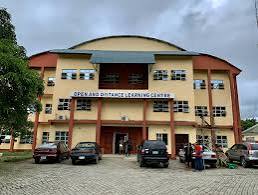The Nigerian government is doubling down on Open and Distance Learning (ODL) as a key strategy to expand access to higher education. Minister of Education, Professor Tahir Mamman, recently highlighted the government’s commitment to developing robust policies that address quality assurance concerns in ODL programs.

At a recent stakeholders’ roundtable in Abuja, Mamman emphasized that ODL degrees from accredited institutions hold equal value to those from traditional universities. This stance aims to counter skepticism from some employers and members of the public about the quality of ODL education.
The push for ODL comes as a response to the severe shortage of university spots in Nigeria. Currently, only about 25% of qualified applicants secure admission to conventional universities each year. ODL programs, particularly those offered by the National Open University of Nigeria (NOUN), are seen as a crucial solution to this educational bottleneck.
However, the government acknowledges ongoing challenges. Some ODL graduates have faced difficulties participating in law school and the National Youth Service Corps (NYSC) scheme. Mamman assured that these issues are being addressed and should be resolved soon.
The education sector is also grappling with a significant brain drain, losing talented educators to countries like Canada, the United States, and Germany. Mamman revealed that the outflow of teaching professionals actually surpasses that of the medical sector, a fact that may surprise many Nigerians.
To strengthen the ODL system, the government is developing a standalone National Policy on Open, Distance and e-Learning. This initiative brings together stakeholders from academia, government agencies, and the private sector to share experiences and address technical challenges.
EmeritusProfessor Olugbemiro Jegede, a pioneer in Nigerian ODL, underscored the transformative potential of this educational model. He pointed to successful ODL graduates like Emeritus Professors Pai Obanya and Afe Babalola as examples of the system’s effectiveness.
As Nigeria navigates its educational 7challenges, the government sees ODL as a critical tool for expanding access to higher education and developing the nation’s human capital. With continued policy refinement and quality assurance measures, ODL is poised to play an increasingly important role in shaping Nigeria’s educational landscape.




